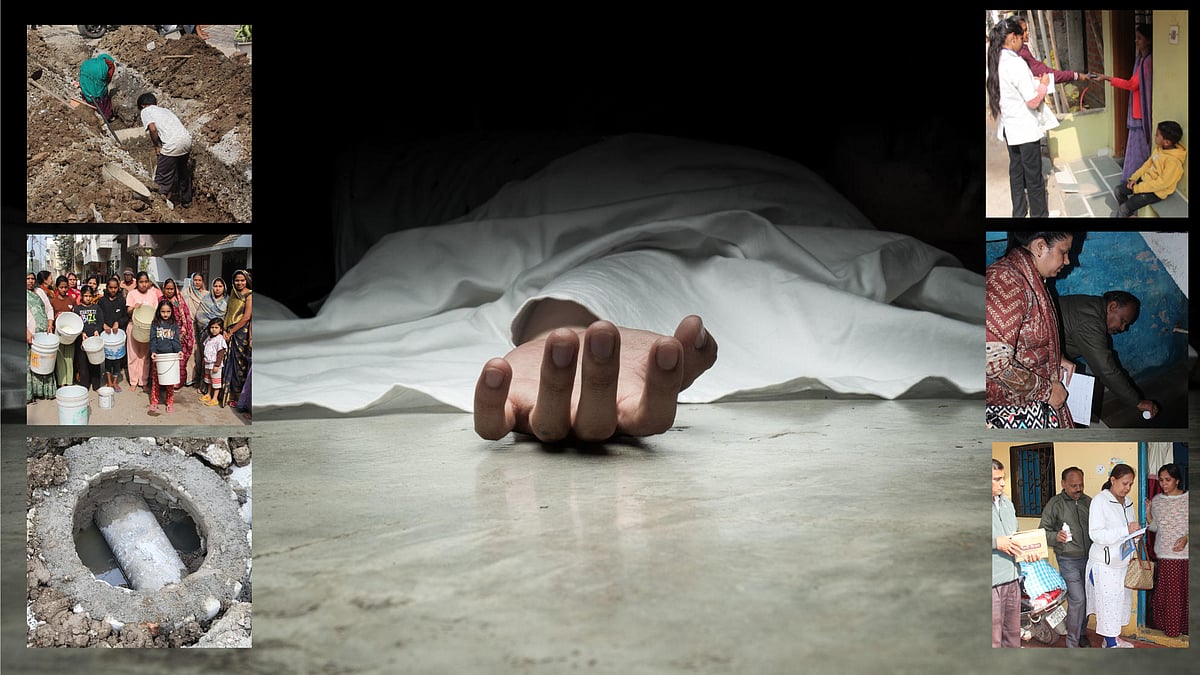When Kamal Iyer (name changed) went to the US for his studies, his family was certain of him doing well. But over a period of time, there was a letter from the University that shook the family. Iyer had been missing lectures and it was a warning of him losing a semester. The desire to be on different apps ended with Iyer spending more time on his mobile handset and electronic gadget than what he had gone to do in the US.
"It started with chatting and he slowly caught on to gaming. Spending a lot of time on different apps made him lose out on the time he had to devote for his projects. Slowly things started to pile up and he was unable to cope up with the workload. It led to him losing focus and interest in his goals. He got depressed and came back home. He is much better now and applying again," said Dr. Seema Hingorrany, clinical psychologist who treated Iyer.
Iyer's is not the only case. In the case of Rohan Kripal (name changed), he lost out on studies after standard 10. "After 10th he enrolled himself in college but stopped studying over a period of time. The lockdown got him into gadget mode and slowly he moved into social media and gaming. He would spend time on his mobile through the night and sleep sometimes during the day. There was sleep deprivation," said Pratima Bhandarkar, mental health professional doing counselling work at Responsible Netism, an organisation that works toward cyber and mental wellness and cyber safety. Rohan's parents approached netism when they felt he had become addicted. He would fight with his parents and his mood changed over a period of time when they would raise the issue of his studies.
It has been nearly two years since he has had a break in his studies and things have not fully gone back to normal as yet on the education front. "Things came to such a pass that he would be anxious on what to talk and what to tell people when he met someone. One to one interaction was minimal and his vocabulary suffered," said Bhandarkar.
In the case of Sonam Mehra, her obsession with the online world was due to family problems. Social media was like a refuge to her. "Now there are signs of addiction as she gets very angry and violent if the mobile is taken away from her. She is just about 12," said Bhandarkar.
Losing out on career, academic problems, sleep deprivation, behavioural problems, impairing of vision, lack of focus and short attention span, gait and posture issues, stiffness in fingers, headache, hunch, unmindfulness, lack of stamina, vitamin deficiency, impulsive, snappy and hyper behaviour are among the many problems that addiction have led to and those that experts working in the field say one should be careful about. "I have got many cases where these problems are common and there have been instances of fights in the family, divorces, people taking loans due to addiction to digital devices. Digital devices tend to cut on emotional connection between people and they get irritated and have less attention span because they keep jumping from one task to another. One needs to understand that gadgets cannot be a resource. It does not give physical strength that an outdoor physical sport does nor concentration that book reading gives," said Dr. Hingorrany.
Experts said that coming out of the problem could take time and this involves effort that are not accusatory but those bordering acceptance. "In the case of the standard 10 kid, he asked what he was interested in? He wanted to be a gamer. So we also talked about animation. Idea was to talk about activities that come from them so that they stay interested and look forward to them," said Bhandarkar.
These approaches, said Sonali Patankar, founder and CEO of Responsible Netism, are divided into preventive and curative. Preventive being educating and awareness related while curative about psychological support, offline and online support, and hospitalisation if need be.
"Much of this depends on the acceptance and openness to the problem and at what point in time people contact us. When parents bring their child to us, there is a lot of reluctance in the child. There are a lot of issues (going on within them) and internet addiction is probably the manifestation of the issues they are grappling with. When we speak to them, they say that when (digital gadget) is out of sight it is out of their mind but when they get back home and are alone, what do they do? Children these days understand they are addicted and it is something we understood through our survey in schools. They acknowledged that their studies get affected and they cannot control. The larger issue is acceptance among parents. They feel how can my child be an addict? But it is something that can happen with your own child too and not with someone else's. It is often brushed under the carpet with them saying, it is just a phase, Thik ho jayega (He will be alright) till the time there is disruption. The issue aggravates to such an extent that there is absolute disruption in the family and you see that it is affecting all. Hence parental acceptance (of the problem), awareness and knowledge of remedies available are very important," said Patankar who is also a senior counsellor.
FPJ Campaign: Experts warn of the risks of digital addiction on youth
Experts said that coming out of the problem could take time and this involves effort that are not accusatory but those bordering acceptance.
Ashutosh M ShuklaUpdated: Sunday, May 07, 2023, 08:54 PM IST

Representative Image
RECENT STORIES
Autistic Barbie Doll Debuts In India To Represent Neurodivergent Children; Here's How Internet...
 Indore Water Tragedy: Death Toll Rises To 23 As 64-Year-Old Dies After 10 Days Of Treatment
Indore Water Tragedy: Death Toll Rises To 23 As 64-Year-Old Dies After 10 Days Of Treatment
 'Clarifying Paternity, Intimacy Struggles, & Erectile Dysfunction': Expert Answers To Common Sexual...
'Clarifying Paternity, Intimacy Struggles, & Erectile Dysfunction': Expert Answers To Common Sexual...
 Indore Water Tragedy: Congress Chief Jitu Patwari, LoP Umang Singhar Lead Protest As Hundreds Of...
Indore Water Tragedy: Congress Chief Jitu Patwari, LoP Umang Singhar Lead Protest As Hundreds Of...
 Indore Water Tragedy: Death Toll Rises To 17; Collector, Municipal Commissioner Revisit...
Indore Water Tragedy: Death Toll Rises To 17; Collector, Municipal Commissioner Revisit...






